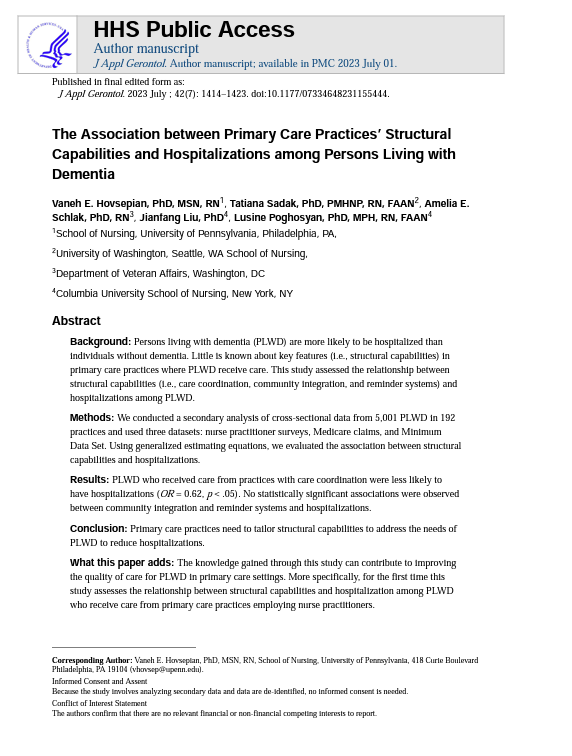Headline
Care coordination services in primary care clinics are shown to reduce avoidable hospitalizations among persons living with dementia.
Context
Persons living with dementia face an elevated risk of hospitalizations, which are costly and sometimes avoidable. Managing this risk can help to reduce discharges to nursing facilities, caregiver strain, and overall health care costs. Many primary care clinics have invested in structural capabilities, such as enhanced care coordination, community resource referrals, and provider reminder systems, to enhance patient outcomes and decrease hospitalizations, particularly among those with complex care needs. This study investigated the impact of these interventions on persons living with dementia.
Findings
Using Medicare claims data and provider survey responses, the authors matched the health records of over 5,000 persons living with dementia with 192 primary care practices across California. Patients receiving care coordination services in primary care clinics were less likely to experience avoidable hospitalizations. However, no statistically significant relationship was found between the presence of care coordination services and all-cause hospitalizations. Similarly, the use of referrals to community resources or provider reminder systems within clinics did not appear to have a significant impact on patients’ likelihood of hospitalization.
Takeaways
This research adds to the substantial body of evidence demonstrating the positive impact of care coordination on patient outcomes, identifying persons living with dementia as a specific population who may benefit from these services.



